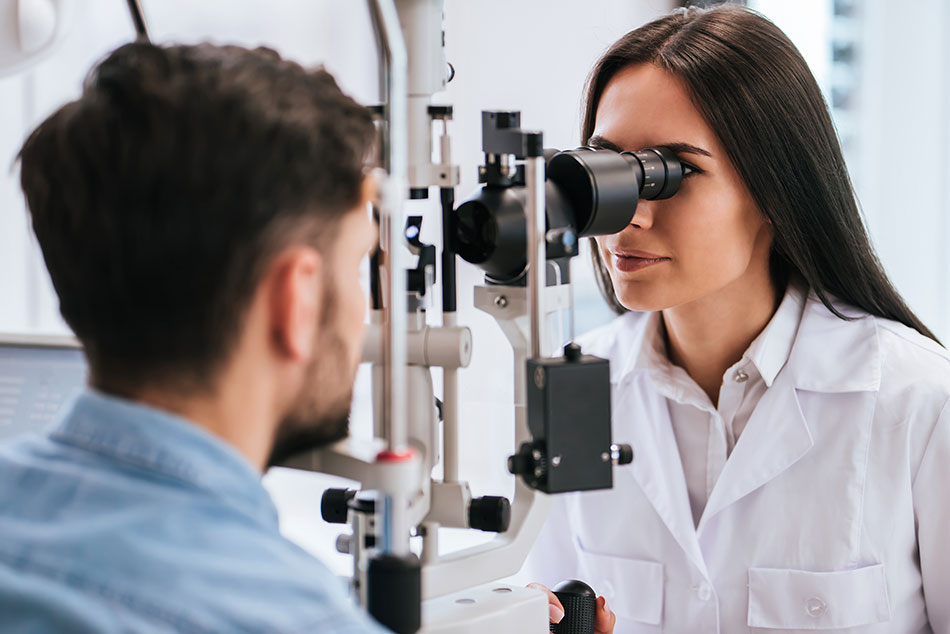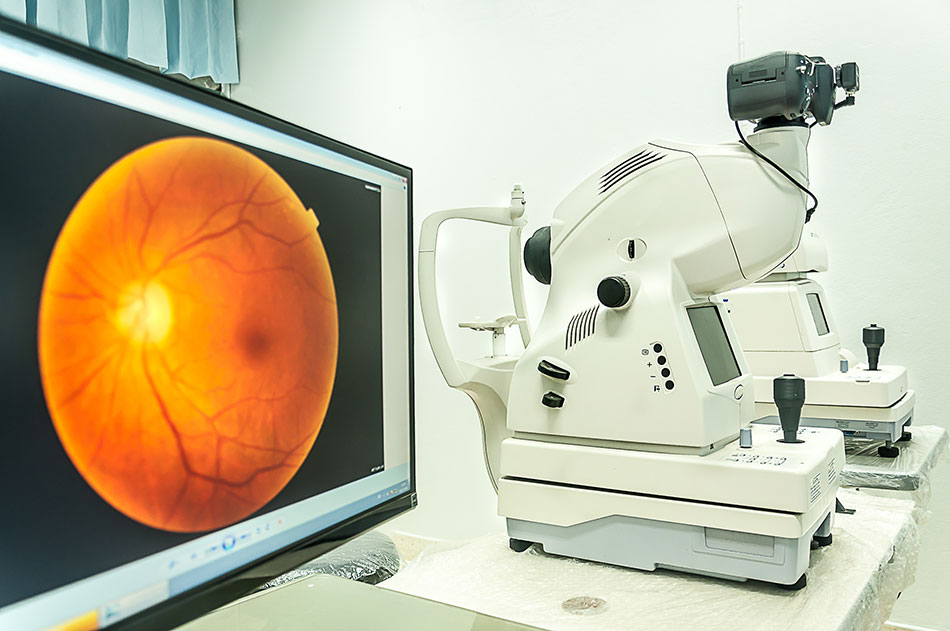How to Protect Your Sight According to Top Eye Care Professionals

We can all take steps to protect our sight. Certain eye diseases and conditions that cause vision loss are treatable if they are detected early.
You can minimize your chances of developing an eye problem in later life by making small changes to your lifestyle today. You can also minimize your chance of infection by taking good care of your contact lenses.
Here, we’ll share advice on how to protect your sight according to top eye care professionals.
1. Have a Regular Eye Exam

The most important advice eye care professionals give to their patients is to have regular eye exams. Having a regular eye exam is the only way to check that your eyes are healthy and your prescription is up to date.
Not all eye conditions have obvious symptoms. Only a comprehensive dilated eye exam, during which your eye doctor uses drops to dilate your pupil, can reveal signs of disease within your eye. Diagnosing an eye condition early can dramatically improve treatment options. In turn, it can slow the progression of the disease.
A regular eye exam will also detect any small changes in your eyes that could alter the prescription of your eyeglasses or contact lenses. Wearing the wrong power lenses can negatively affect your vision. You also need an up to date prescription in order to purchase contact lenses online.
The Canadian Association of Optometrists recommends the following:
- Infants should have their first eye exam between the ages of 6 and 9 months
- Small children should have at least one eye exam between the ages of 2 and 5
- School children should have an eye exam annually between the ages of 6 and 19.
- Adults should have an eye exam every 2-3 years until the age of 65 and thereafter, they should have an exam annually.
If you experience any changes to your vision, eye pain or discomfort, don’t wait for your next checkup. Have an eye exam as soon as possible.
2. For Healthy Eyes, Know Your Eye Health History

How many of us have ever considered our family’s history of eye disease? There are more than 350 hereditary eye conditions. The most common of these are glaucoma, age-related macular degeneration, optic atrophy and retinitis pigmentosa. Genetics can also determine refractive errors and colour blindness. Your parents or grandparents may have or had pronounced nearsightedness, farsightedness or astigmatism. If this is the case, you’re more likely to suffer from those same afflictions too.
Making your eye care professional aware of your eye health history helps them to better monitor your own eye health.
3. Take Good Care of Your Contact Lenses

For many people with refractive errors, contact lenses offer a convenient and comfortable way to correct their vision. However, it’s important to remember that contact lenses are still medical devices. While they are stringently regulated by Health Canada, their use does come with certain risk factors.
The risk of developing a serious eye infection is higher for contact lens wearers than non-wearers. Infections that can lead to blindness affect 1 out of every 500 contact lens wearers per year. So proper contact lens care is an important part of wearing contacts. Unfortunately, between 40 and 90% of contact lens wearers do not follow the instructions to care for their lenses.
Contact lenses with a weekly, monthly or bi-monthly wearing schedule need more care than daily disposable lenses. Daily disposables come individually packaged in a sterile solution and are single use only. Re-wearable lenses must be cleaned and stored at the end of each day.
The following contact lens care tips are key for all contact lens types:
- Wash your hands with soap and hot water and dry them on a lint-free towel before inserting or removing your lenses.
- Insert your lenses after putting on makeup. Remove your lenses before removing your makeup.
- Never get your contact lenses wet.
- Never sleep in your contact lenses.
- Clean contact lenses after removing them (unless they’re disposable) using contact lens solution.
- Store your lenses overnight in a pre-cleaned lens case filled with fresh contact lens solution.
- Never wear your lenses past the recommended wearing schedule.
- Always carry a backup pair of eyeglasses in case you have to remove your lenses.
4. Follow a Healthy Lifestyle

Small lifestyle changes can have a dramatic impact on the health of your eyes. Most eye conditions and diseases are preventable — even those that can lead to blindness. In fact, at least half of all sight loss is avoidable.
Unhealthy lifestyle factors are strongly linked to sight loss and some other medical conditions. The most simple and effective way to lower your risk of sight loss in later life is to take care of your overall health.
- Eat right for your sight. Following a diet that is rich in omega-3 fatty acids, vitamins C and E, as well as minerals like lutein and zinc could help ward off eye disease. Foods like green leafy vegetables, oily fish, eggs, nuts and citrus fruits all have pronounced eye health benefits.
- Watch Your weight. Obesity plays a major role in the development of diabetes. Diabetes massively increases your risk of developing eye conditions. It can lead to vision loss and issues such as glaucoma or diabetic retinopathy. For advice on and support with maintaining a healthy weight, visit your doctor.
- Avoid eye strain. We spend more time than ever staring at computers, smartphones and television screens. In fact, young Canadians, between the ages of 18 and 34, spend an average of nearly five hours a day on the internet. That’s five hours staring at a screen.
- Too much screen time causes eye fatigue and dries out your eyes, which can lead to more serious complications such as infection. Practise the 20-20-20 rule and rest every twenty minutes by focusing on something 20 feet away from you for 20 seconds.
- Protect your eyes from the sun. Excessive exposure to UV rays can have lasting effects on your vision. UV ray exposure has been linked to eye conditions like macular degeneration, cataracts, and corneal sunburn. Pterygium, a growth on the cornea that can affect vision, is another sun-related eye disease. To reduce the risks, wear sunglasses that block at least 99 percent of the sun’s UVA and UVB rays.
By following these important tips recommended by top eye care professionals, you can protect your sight for years to come.
